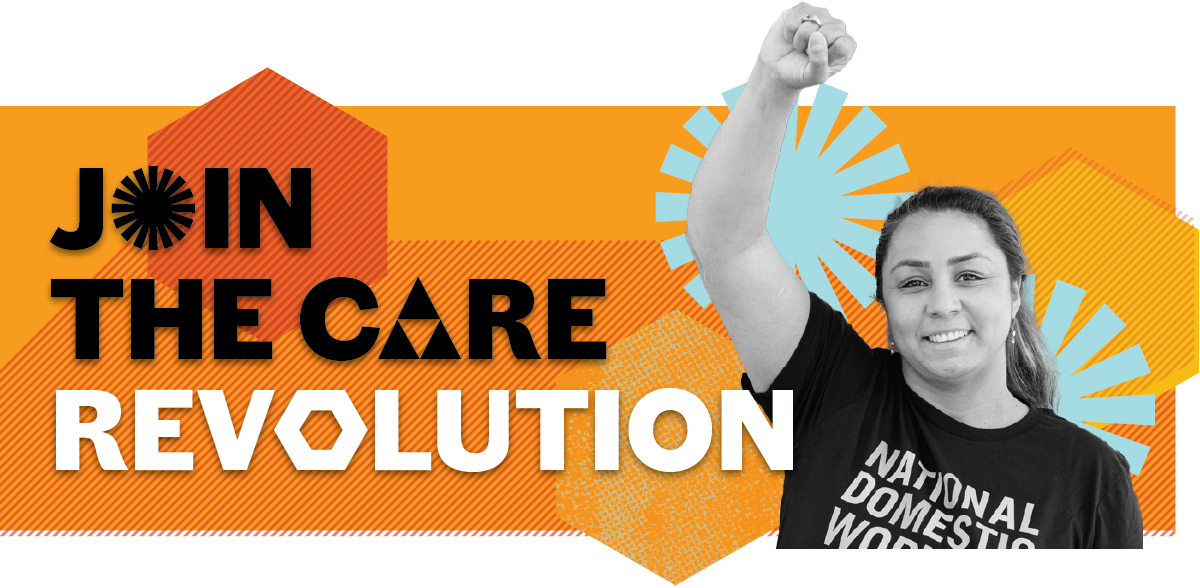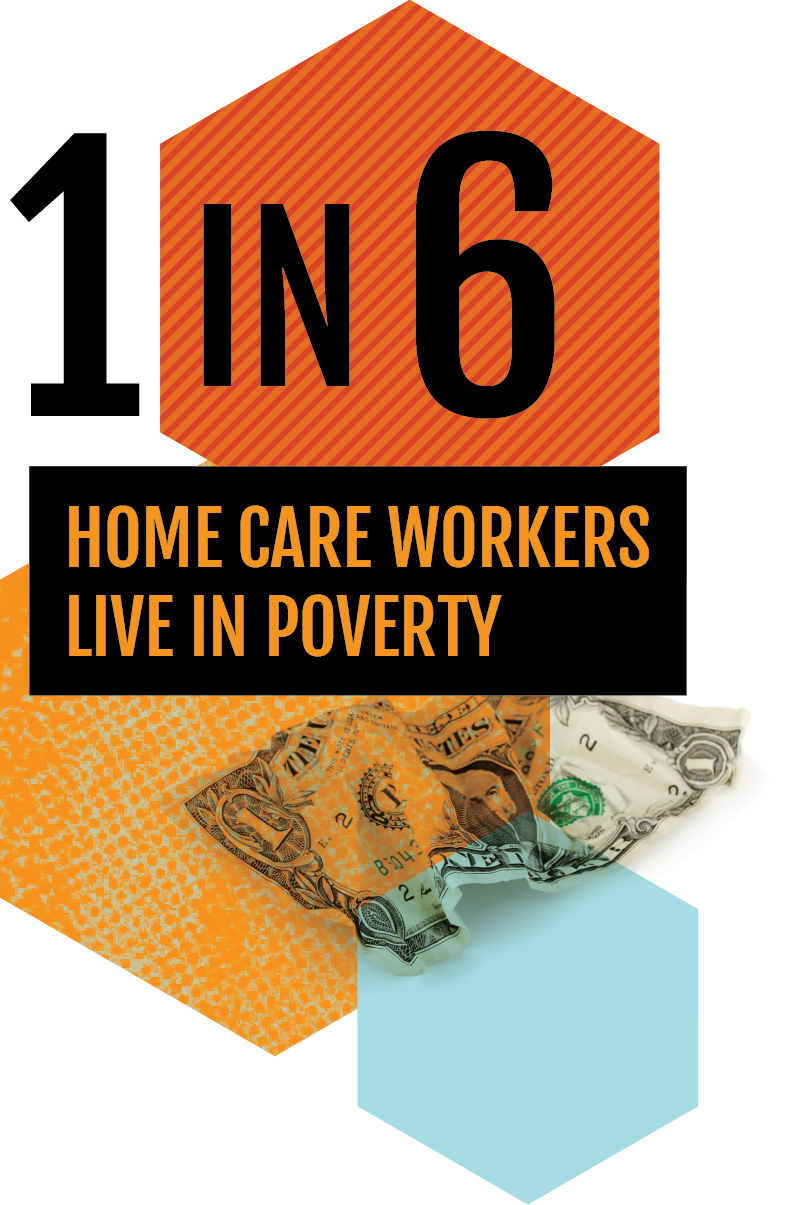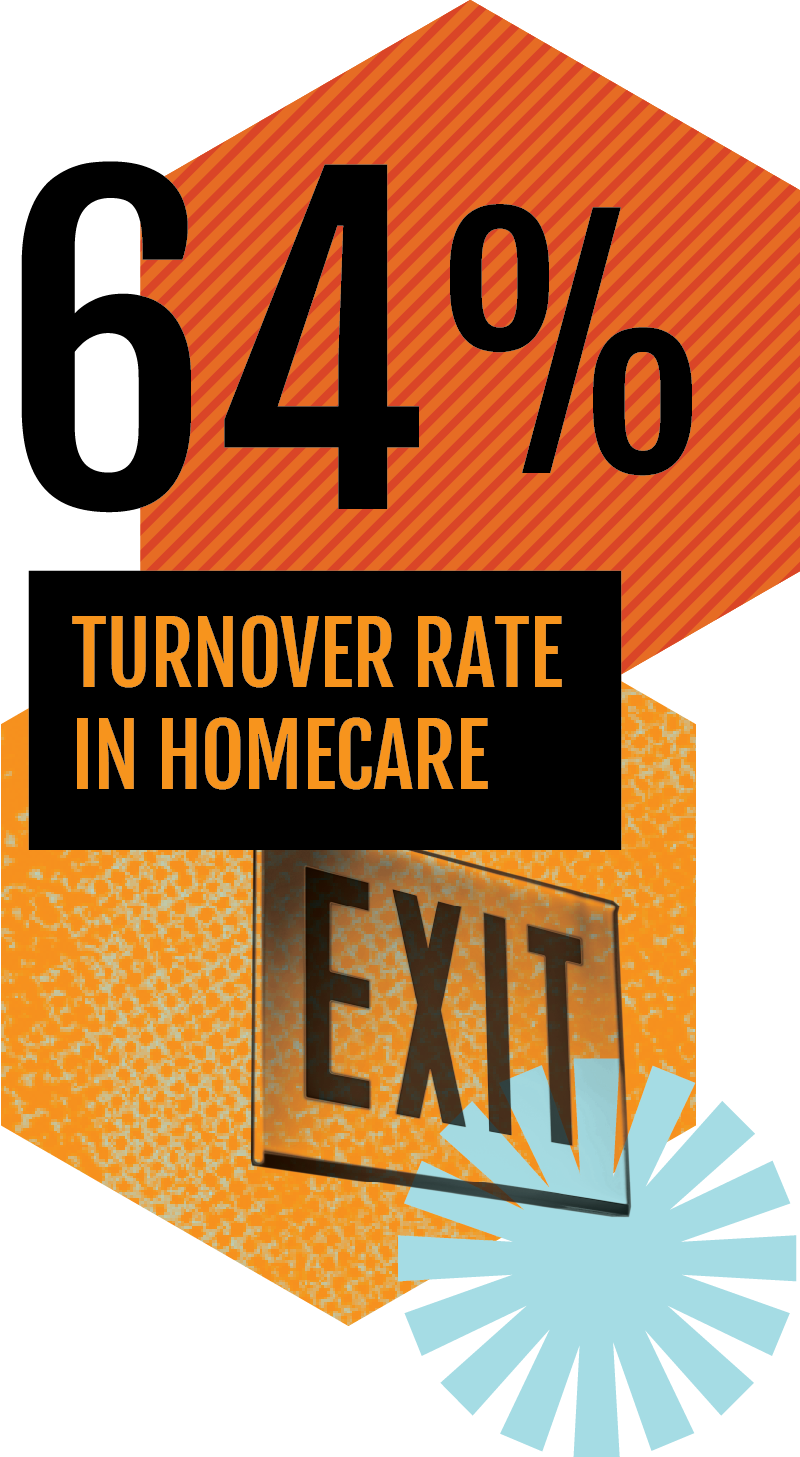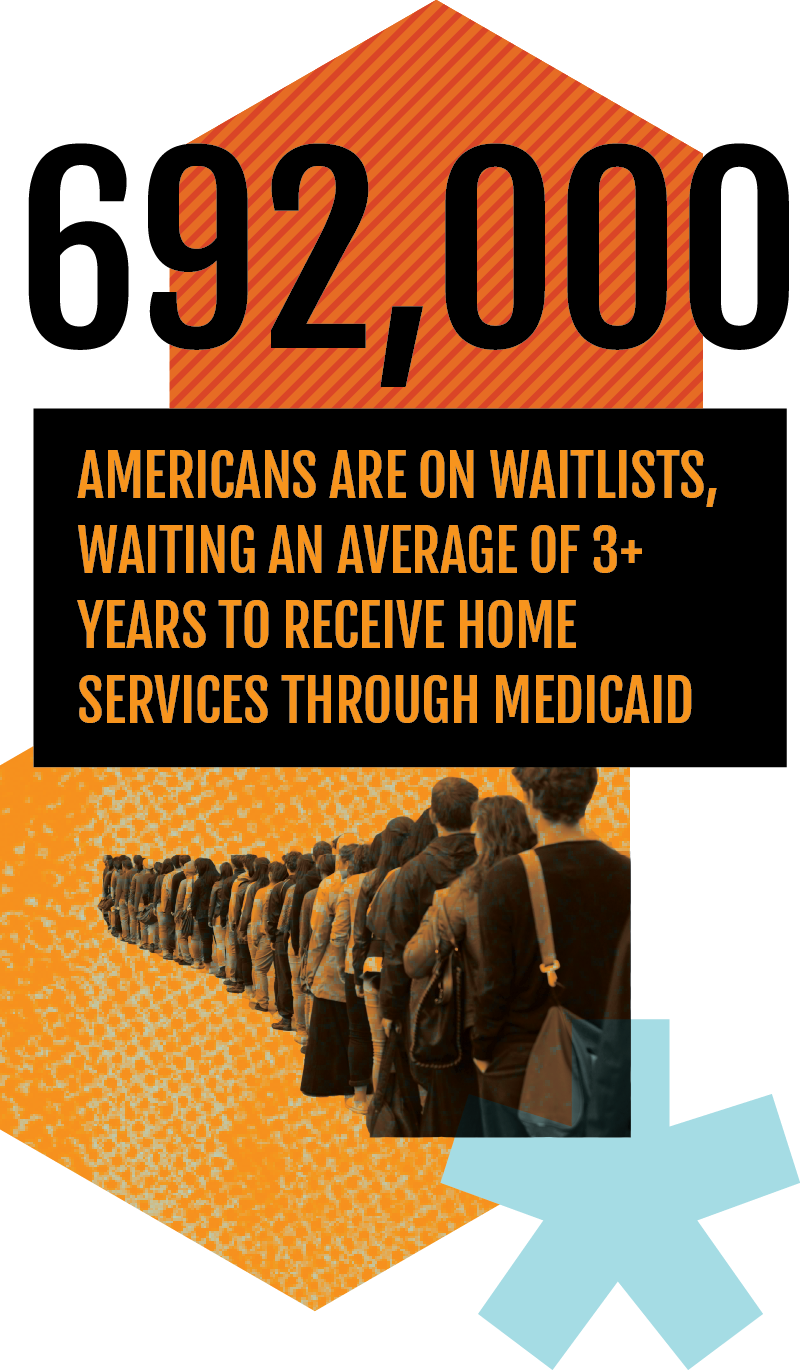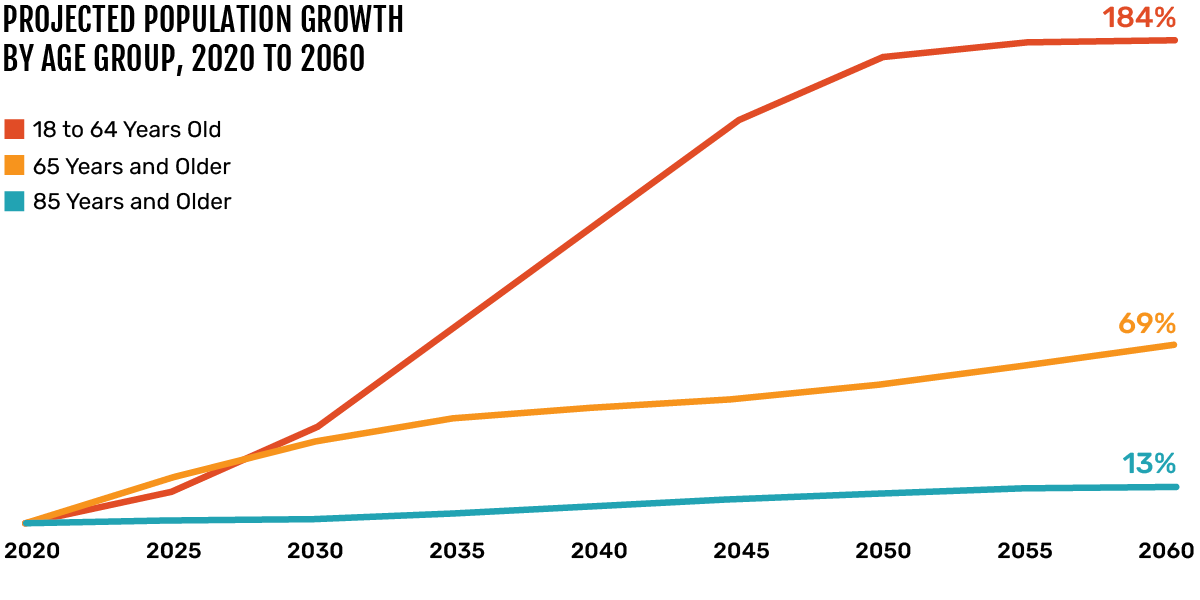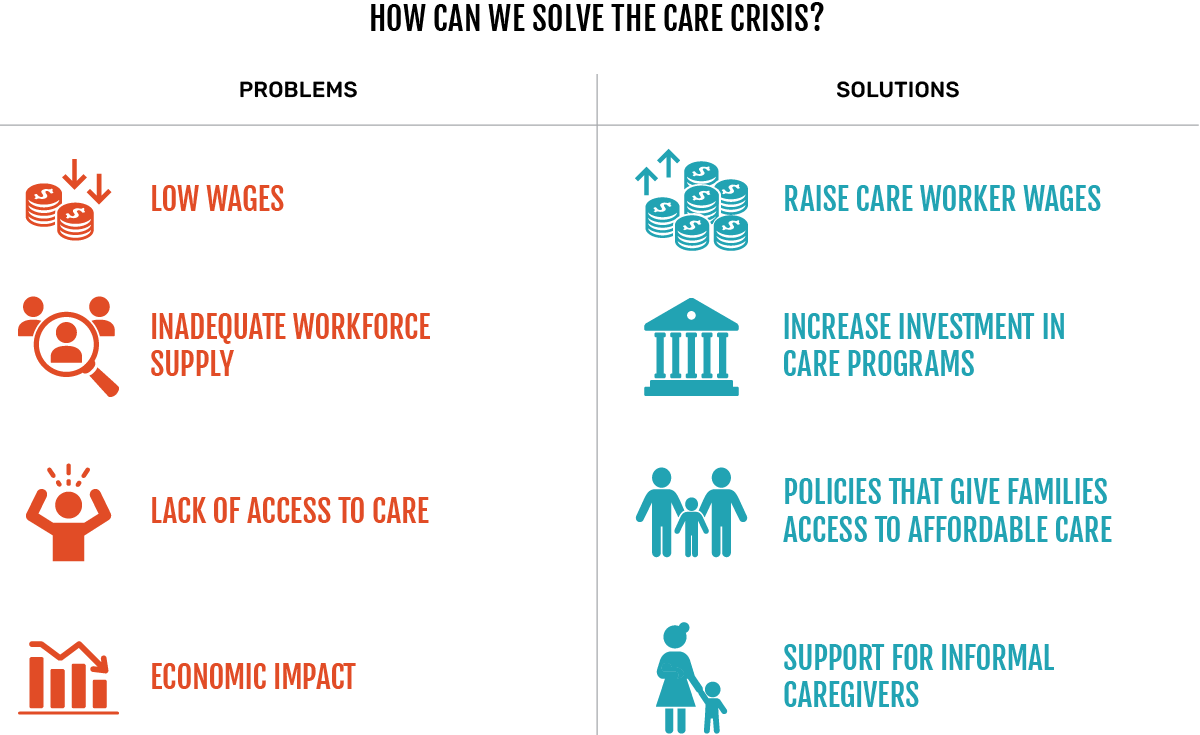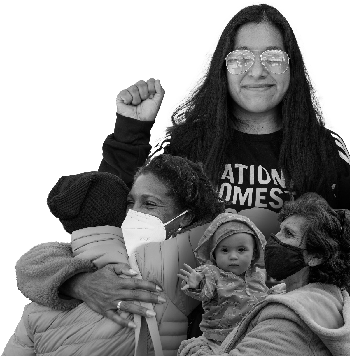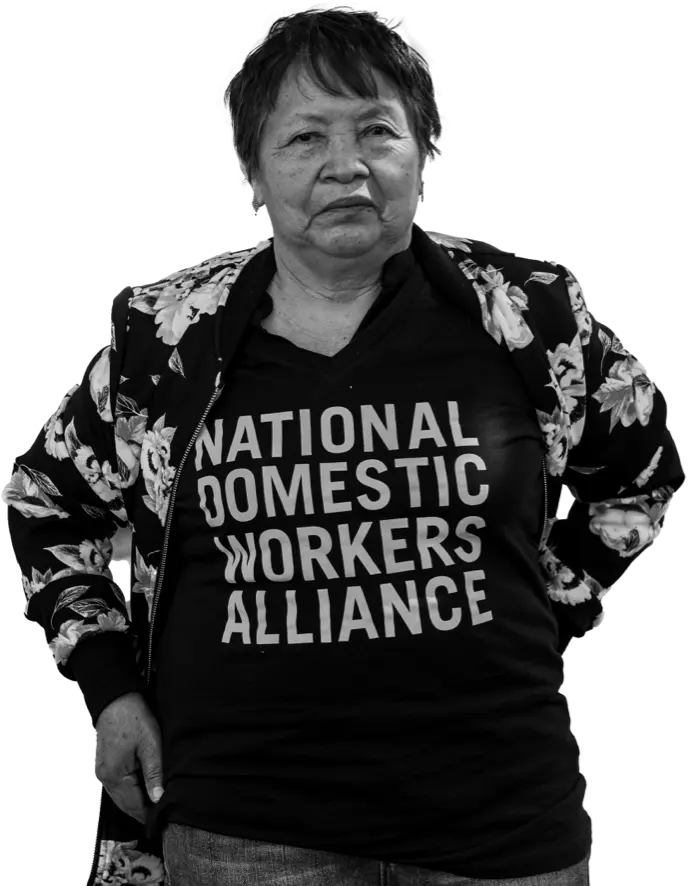Our Impact
In 2023 and 2024, we hit major milestones towards transforming the way this country treats care and caregivers.
The Executive Order on Increasing Access to High-Quality Care and Supporting Caregivers (EO)
In 2023, the Biden-Harris Administration announced executive actions to improve care, which were the most comprehensive set of actions in the history of the United States. The executive order includes more than 50 directives to federal agencies to utilize existing funding to expand access to quality, affordable care, and provide support to family caregivers and care workers, including domestic workers.
These executive actions recognize the critical importance of care work, including paid and unpaid responsibilities such as child care, elder care, and disability care. It acknowledges the challenges care workers face, who are often undervalued and underpaid, and aims to improve their wages, benefits, and working conditions. Learn more about the impact of this historic Executive Order on Increasing Access to High-Quality Care and Supporting Caregivers.
Proclamation on Care Workers Recognition Month
In 2023 and 2024, the White House proclaimed April as Care Workers Recognition Month, highlighting the Administration’s continued commitment to strengthening the care economy and marking a critical step forward for direct care workers, caregivers, early childhood educators, and child care workers to live and work with the respect and recognition they deserve. In 2024, the Biden-Harris Administration also announced that April will also serve as a “Month of Action on Care” to make caring for families more affordable and accessible.
This proclamation represents a turning point in our country – public recognition of work often invisibilized and undervalued, made possible by the women of color who have organized for decades to achieve transformational change in the care industry.
Every April, join us as we celebrate Care Workers Recognition Month and honor the millions of Black, Brown, Latinx, and immigrant care workers who support our families and communities every day!
“Ensuring Access to Medicaid Services” Rule
On April 22, 2024, the Center for Medicare and Medicaid Services (CMS) released the final “Ensuring Access to Medicaid Services” rule,” which marks a crucial step towards improving access to home-based care and better wages and working conditions for home care workers. In defining access to Medicaid, CMS recognizes the inextricable link between quality of Home and Community Based Services (HCBS) & the wages of Direct Care Workers, noting that low wages has led to direct care workforce shortages, which jeopardize access to long-term care. Improving wages and working conditions to stabilize the workforce will ensure access to higher quality and continuous care.
The Payment Adequacy provision of the rule applicable to Medicaid’s Home and Community Based Services, establishes a national standard for State Medicaid agencies to require home care providers dedicate at least 80% of all Medicaid payments of home care services towards the compensation for direct care workers.* Medicaid is the largest payor of long-term home care, (these services are not provided by Medicare) and HCBS beneficiaries include the aging and individuals with disabilities, who otherwise may be institutionalized in a nursing home. Direct care workers assist these consumers of care with Activities of Daily Living (ADLS), such as mobility, personal hygiene, and eating and Instrumental Activities of Daily Living, such as cooking, grocery shopping, and managing finances. The rule also requires States to form an Interested Parties Advisory Group, which must include direct care workers to convene to analyze adequacy of existing Medicaid Payment rates and provide public recommendations to the State to raise rates in order to stabilize the workforce.
In it published response to comments made on during the public notice process, CMS acknowledged the voices of many direct care workers who submitted “personal examples of the hardships caused by financial strain due to inadequate pay, including having to work long hours at multiple jobs to earn extra income, missing time with their own families, struggling to pay bills, risking exposure to (or contracting) COVID-19, and experiencing burnout and psychological stress.” They stated how the stories of direct care workers showed that low wages impact worker retention and their proposal was critical because direct care workers have been paid low wages for a long time.
While this standard will ensure home care workers get a fair share of the payments from the government for services they provide and agencies must responsibly manage public monies- NDWA is still campaigning at state and federal levels to dedicate more public dollars to increasing wages. Thank you to everyone who submitted comments in favor of this rule last year and hope you will continue to participate in our campaigns to improve wages and benefits for the direct care workforce! We rely on our members and supporters to ensure States implement these rules in a timely manner, and solicit the support of state and federal legislators to pledge greater investment in Medicaid HCBS to ensure everyone who needs home care is able to access it and that these care jobs are quality and high-paid jobs.
*There are flexibilities to state rules.
As we strive to address the challenges faced by caregivers and ensure a brighter future for all, staying informed and connected is crucial. Sign up for NDWA’s email list today to receive updates on our ongoing efforts, opportunities for action, and ways to get involved in advocating for caregivers and those they support. Together, we can build a more equitable and compassionate society where care is valued and accessible for all. Join us in making a difference!

